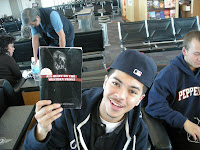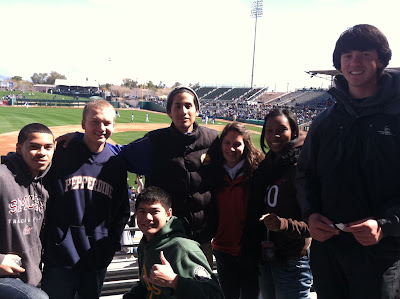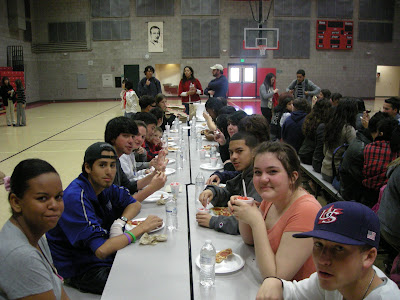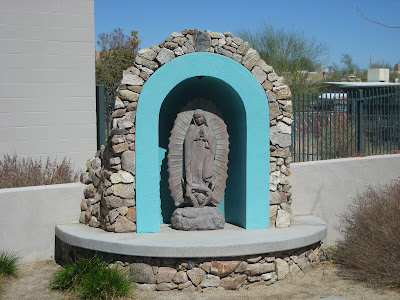Before we tell you anything about Tuesday, watch this Fox News story that aired last night at 9:00 pm:
http://www.fox11az.com/news/local/Tucson-students-get-border-immigration-experience-117253923.html
On our journey to visit some memorial sites for migrants who lost their lives, Fox News heard about El Otro Lado program and asked to join us. According to Alma, this type of objective coverage of the issue of immigration in Arizona is rare.
 After a quick breakfast and prayer service, we left San Miguel to join "The Samaritans," a humanitarian organization dedicated to helping migrants stay alive while crossing the desert. We visited a "fresh layup site," which means immigrants recently used the site while waiting for transfer. We peered into the forsaken belongings of those who were shedding their previous life in hopes of achieving their dream. Here's an example of what we found...
After a quick breakfast and prayer service, we left San Miguel to join "The Samaritans," a humanitarian organization dedicated to helping migrants stay alive while crossing the desert. We visited a "fresh layup site," which means immigrants recently used the site while waiting for transfer. We peered into the forsaken belongings of those who were shedding their previous life in hopes of achieving their dream. Here's an example of what we found...
Here's the trash we picked up.
After we nursed Alfonso and Sam back to health (both had a fever walking in the desert), we raced to a remote ranch to meet two remarkable women who build memorial sites in the desert for bodies that are found. Their ranch is adjacent to a popular migration route. The desert was big, barren, stark, dramatic, hot, and made everyone feel their finitude, especially against the backdrop of an environment that took (and continues to take) the lives of so many people.
Everywhere we turned, we'd see the forsaken elements of the migrants. Here's some pants and a shirt...
The first memorial site was of a young woman who died of hyperthermia. Before she surrendered her life, she wrote a poem. The poem was hanging on the cross, and Palladino read it to the group. All you could feel was silence, the wind, and the sadness. This trip was no longer simply about immigration, but human beings.
The trek continued for a few miles. Dust devils, the sun, and a two more memorial sites left the group emotionally and physically exhausted.
After dinner and prayer, the students reflected on the gravity of their experiences. We are beginning to understand the meaning of privilege.
And yet, Wednesday was even harder and more emotionally intense.





















































